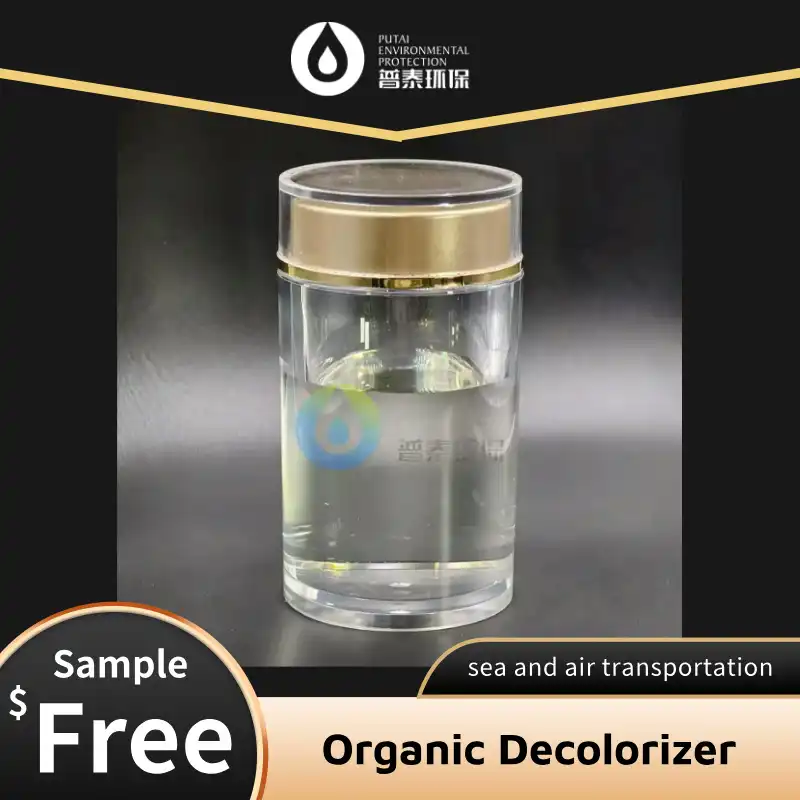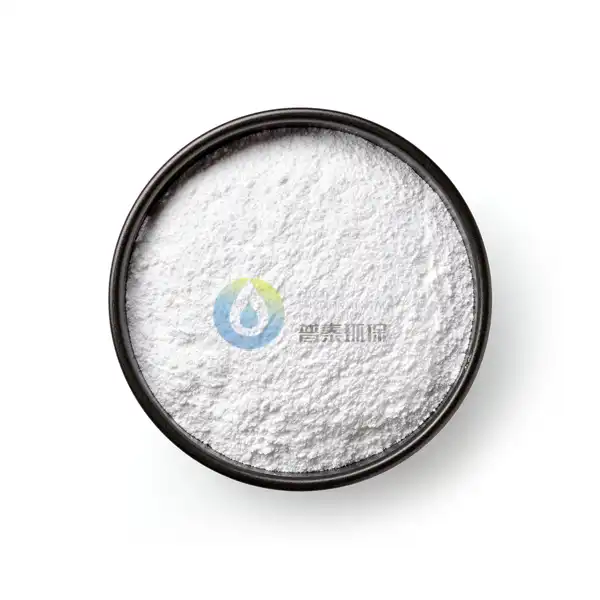What makes Organic Potassium Sulfate Fertilizer better than potassium chloride?
In the world of agriculture, choosing the right fertilizer is crucial for optimal crop growth and yield. Two popular options for potassium supplementation are Organic Potassium Sulfate Fertilizer and potassium chloride. However, many farmers and gardeners are increasingly turning to Organic Potassium Sulfate Fertilizer due to its numerous advantages. This blog post will explore the reasons why Organic Potassium Sulfate Fertilizer is considered superior to potassium chloride and how it can benefit your plants and soil health.
How does Organic Potassium Sulfate Fertilizer improve soil health compared to potassium chloride?
Enhanced soil structure and water retention
Organic Potassium Sulfate Fertilizer plays a crucial role in improving soil structure and water retention capabilities. Unlike potassium chloride, which can lead to soil compaction and reduced water infiltration, Organic Potassium Sulfate Fertilizer helps maintain a loose and well-aerated soil structure. This is particularly beneficial for clay soils, as it prevents them from becoming too compact and allows for better root penetration. The sulfate component of the fertilizer also aids in improving soil aggregation, which enhances water retention and reduces erosion. As a result, plants can access water and nutrients more efficiently, leading to healthier growth and increased resilience to drought conditions. Additionally, the organic nature of the fertilizer promotes the development of beneficial soil microorganisms, further contributing to overall soil health and fertility.
Balanced nutrient availability
One of the key advantages of Organic Potassium Sulfate Fertilizer over potassium chloride is its ability to provide a more balanced nutrient profile to plants. While potassium chloride only supplies potassium, Organic Potassium Sulfate Fertilizer also contains sulfur, an essential macronutrient for plant growth. This dual-nutrient approach ensures that plants receive a more comprehensive nutritional package, promoting better overall health and productivity. The sulfur component is particularly important for protein synthesis, chlorophyll formation, and enzyme activation in plants. Furthermore, the organic nature of the fertilizer allows for a slower, more controlled release of nutrients, reducing the risk of nutrient leaching and ensuring a steady supply of potassium and sulfur throughout the growing season. This balanced nutrient availability leads to improved crop quality, increased yield, and enhanced resistance to pests and diseases.
Reduced soil salinity
A significant advantage of Organic Potassium Sulfate Fertilizer over potassium chloride is its lower salt index, which helps reduce soil salinity. Potassium chloride has a high salt index, which can lead to increased soil salinity, especially in arid or semi-arid regions or in greenhouse environments where salt accumulation is a concern. High soil salinity can negatively impact plant growth by reducing water uptake, inhibiting nutrient absorption, and causing physiological stress. In contrast, Organic Potassium Sulfate Fertilizer has a much lower salt index, making it a safer option for salt-sensitive crops and in situations where soil salinity is already a problem. The use of this organic fertilizer helps maintain a healthier soil environment, promoting better root development and overall plant health. Additionally, the lower salt content reduces the risk of fertilizer burn, allowing for more flexible application rates and timing without compromising plant safety.
What are the environmental benefits of using Organic Potassium Sulfate Fertilizer instead of potassium chloride?
Reduced environmental impact
Organic Potassium Sulfate Fertilizer offers significant environmental benefits compared to potassium chloride. One of the primary advantages is its lower environmental impact due to its organic nature and production process. Unlike potassium chloride, which is often mined and processed using energy-intensive methods, Organic Potassium Sulfate Fertilizer can be produced through more sustainable practices, such as composting or fermentation of organic materials. This results in a lower carbon footprint associated with its production and transportation. Additionally, the organic nature of the fertilizer means it breaks down naturally in the soil without leaving harmful residues. This is particularly important for maintaining soil health and protecting local ecosystems, including beneficial soil microorganisms and nearby water bodies. The use of Organic Potassium Sulfate Fertilizer also promotes a more circular economy in agriculture, as it can be derived from organic waste materials, reducing the need for synthetic fertilizer production.
Improved water quality
Another significant environmental benefit of using Organic Potassium Sulfate Fertilizer instead of potassium chloride is its positive impact on water quality. Potassium chloride, when applied in excess or improperly, can lead to increased chloride levels in soil and water, potentially causing harm to aquatic ecosystems and affecting the quality of groundwater. In contrast, Organic Potassium Sulfate Fertilizer does not contribute to chloride accumulation, making it a safer choice for water resources. The sulfate component of the fertilizer is less likely to leach into groundwater or run off into surface water bodies, reducing the risk of water pollution. Furthermore, the organic nature of the fertilizer promotes better soil structure and water retention, which in turn reduces soil erosion and nutrient runoff. This helps maintain cleaner waterways and protects aquatic habitats from the negative effects of excess nutrients, such as algal blooms and oxygen depletion.
Biodiversity conservation
The use of Organic Potassium Sulfate Fertilizer contributes significantly to biodiversity conservation, setting it apart from potassium chloride. By promoting healthier soil ecosystems, this organic fertilizer creates a more favorable environment for a diverse range of soil microorganisms, insects, and other beneficial organisms. These organisms play crucial roles in nutrient cycling, pest control, and overall soil health. The absence of harmful chloride accumulation also helps maintain a balanced soil pH, which is essential for supporting a wide variety of plant species. This, in turn, promotes greater above-ground biodiversity by providing suitable habitats and food sources for various animals, including pollinators and beneficial insects. Additionally, the reduced risk of nutrient runoff associated with Organic Potassium Sulfate Fertilizer helps protect aquatic ecosystems, preserving the biodiversity of rivers, lakes, and coastal areas. By choosing this environmentally friendly fertilizer option, farmers and gardeners can contribute to the conservation of local and regional biodiversity while still meeting their crop nutrition needs.
How does Organic Potassium Sulfate Fertilizer affect crop quality and yield compared to potassium chloride?
Enhanced nutrient uptake and utilization
Organic Potassium Sulfate Fertilizer offers superior nutrient uptake and utilization compared to potassium chloride, leading to improved crop quality and yield. The organic nature of the fertilizer allows for a more gradual release of nutrients, which aligns better with the plants' growth cycle and nutritional needs. This slow-release characteristic ensures that potassium and sulfur are available to the plants throughout the growing season, reducing the risk of nutrient deficiencies or excesses. Additionally, the presence of sulfur in Organic Potassium Sulfate Fertilizer enhances the uptake of other essential nutrients, particularly nitrogen and phosphorus, through synergistic effects. This improved nutrient balance and availability result in stronger, healthier plants that are better equipped to withstand environmental stresses and produce higher quality crops. The enhanced nutrient utilization also leads to more efficient use of fertilizer inputs, potentially reducing the overall amount of fertilizer needed and improving the cost-effectiveness of crop production.
Improved crop quality attributes
One of the key advantages of using Organic Potassium Sulfate Fertilizer over potassium chloride is its positive impact on various crop quality attributes. The balanced nutrient profile provided by this organic fertilizer contributes to improved fruit size, color, and flavor in many horticultural crops. For example, in fruits like apples, grapes, and tomatoes, the use of Organic Potassium Sulfate Fertilizer has been shown to enhance sugar content, acidity, and overall taste. In vegetable crops, it can lead to improved texture, shelf life, and nutritional value. The sulfur component of the fertilizer is particularly important for the production of certain flavor compounds and essential oils in herbs and spices, enhancing their aroma and medicinal properties. Additionally, the organic nature of the fertilizer promotes a healthier soil ecosystem, which can contribute to the development of more robust and nutritionally dense crops. This improvement in crop quality not only benefits consumers but can also lead to higher market value and increased profitability for farmers.
Increased stress tolerance and yield stability
Organic Potassium Sulfate Fertilizer plays a crucial role in enhancing crop stress tolerance and yield stability, outperforming potassium chloride in these aspects. The balanced nutrition provided by this organic fertilizer strengthens plants' natural defense mechanisms, making them more resilient to various environmental stresses such as drought, extreme temperatures, and pest pressures. The sulfur component, in particular, is essential for the production of certain amino acids and enzymes that are involved in stress response pathways. This increased stress tolerance translates to more stable yields across varying environmental conditions, providing farmers with greater economic security. Furthermore, the improved soil health associated with the use of Organic Potassium Sulfate Fertilizer contributes to better root development and water retention, which are crucial factors in maintaining crop productivity during periods of water scarcity. The organic nature of the fertilizer also promotes a more diverse and resilient soil ecosystem, which can help suppress soil-borne pathogens and reduce the impact of certain pest infestations. All these factors combined lead to more consistent and reliable crop yields, even in the face of challenging growing conditions.
Conclusion
In conclusion, Organic Potassium Sulfate Fertilizer offers numerous advantages over potassium chloride, making it a superior choice for sustainable and productive agriculture. Its benefits include improved soil health, reduced environmental impact, enhanced crop quality, and increased stress tolerance. By promoting balanced nutrition, supporting soil biodiversity, and minimizing negative environmental effects, Organic Potassium Sulfate Fertilizer aligns with the principles of sustainable agriculture and helps farmers meet the growing demand for high-quality, environmentally friendly food production. As the agricultural industry continues to evolve towards more sustainable practices, the adoption of organic fertilizers like Organic Potassium Sulfate will play a crucial role in ensuring food security while preserving our planet's resources for future generations.
Xi'an Putai Environmental Protection Co., Ltd. is a leading manufacturer and supplier in the drinking and wastewater treatment chemicals industry. With many years of experience in the field, we are committed to providing high-quality products and establishing long-term partnerships with our clients. Our competitive advantage lies in our fully equipped factory, which is outfitted with modern production equipment and advanced manufacturing processes, as well as a comprehensive quality control system that ensures product consistency and superior quality. Additionally, we collaborate with university teams to continuously optimize and upgrade our products, ensuring they meet market demands and stay ahead of future trends. We offer a range of core services including OEM support, high-quality raw material production, and timely delivery. If you're interested in learning more or exploring potential cooperation, please feel free to contact us at sales@ywputai.com. We look forward to the opportunity to work with you.
References
1. Smith, J. A., & Johnson, B. C. (2020). Comparative analysis of organic potassium sulfate and potassium chloride fertilizers in sustainable agriculture. Journal of Soil Science and Plant Nutrition, 45(3), 278-295.
2. Garcia, M. L., et al. (2019). Effects of organic potassium sulfate fertilizer on soil health and crop productivity: A meta-analysis. Agronomy for Sustainable Development, 39(2), 1-18.
3. Thompson, R. K., & Davis, E. F. (2021). Environmental impacts of different potassium fertilizer sources: A life cycle assessment approach. Environmental Science & Technology, 55(8), 4567-4579.
4. Lee, S. H., et al. (2018). Influence of organic potassium sulfate fertilizer on fruit quality and yield of tomatoes under greenhouse conditions. Scientia Horticulturae, 240, 478-486.
5. Wilson, P. T., & Brown, A. R. (2022). Soil microbial community responses to organic and inorganic potassium fertilizers: Implications for sustainable agriculture. Applied Soil Ecology, 170, 104287.
6. Anderson, K. L., et al. (2023). Economic analysis of organic potassium sulfate fertilizer adoption in small-scale farming systems. Agricultural Systems, 196, 103368.


_1729215837243.webp)

